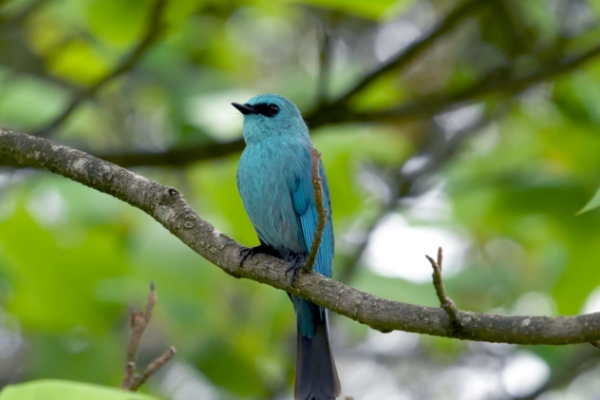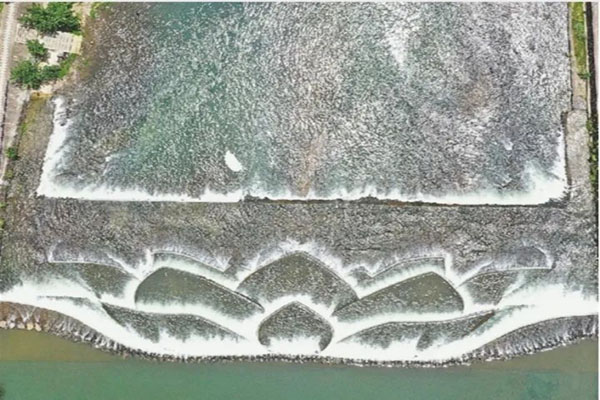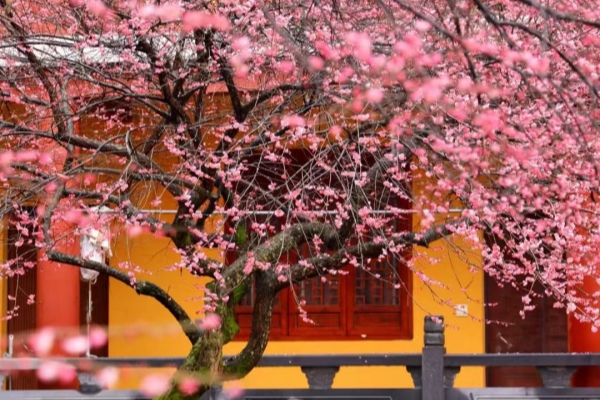Rural wellspring of knowledge points the way to sustainable growth
For many people, bookstores remain an important part of the cityscape. They help provide quiet, green reprieves from the pressures of the concrete jungle, calm oases of knowledge and soothing spots for self-reflection to recharge the mind and body.
But what is it like to have a contemporary bookstore in an ancient village, deep in the mountains? A recent assignment to Chenjiapu village in Songyang county of Lishui city, East China's Zhejiang province, pointed to the answer-the Librairie Avant-Garde, or "cliffside bookstore".
Founded in the city of Nanjing in 1996, Librairie Avant-Garde is a well-known bookstore brand in China. Since its establishment, it has explored a cultural and creative business model, with themes ranging from that of cultural salon or coffee and art gallery, to elements of film, music, lifestyle and fashion, all built on a public platform for openness, discussion and sharing.
The outlet in Chenjiapu covers 300 square meters with about 30,000 books and related products. Its employee Zhao Jin said the store, nestled in a corner of the village with breathtaking views of the mountains and valleys, receives up to 50,000 visitors during peak travel season, with revenue this year already hitting 1.5 million yuan ($234,600).
"This place was renovated on the basis of offering a 'cultural auditorium' in the village. If you look at the exterior, you can't really see any obvious changes because there are almost none. This is also a direction that Librairie Avant-Garde has always adhered to. That is, we won't change the original scenery of the village just because we opened a bookstore. The whole building should blend in with the village. Most of our books themselves are about rural folk customs," he said.
The bookstore has become a must-see attraction in Songyang, with the traffic it helps draw to the area making a considerable impact and bringing real benefits to the local community, Zhao said.
Chenjiapu itself is being lauded as a model of rural vitalization efforts in the national drive for inclusive growth, amid the designation of Zhejiang, one of the country's most developed provinces, as a demonstration zone for closing urban-rural development gaps and achieving common prosperity.
The province aims to attain common prosperity by 2035, with its per capita gross domestic product and the income and standard of living of urban and rural residents reaching those of developed countries.
Chenjiapu is a scenic mountain village, located 800 meters above sea level. It is home to about 850 people making up 336 households, with a history and traditions dating back to the late Yuan (1271-1368) and early Ming (1368-1644) dynasties.
Since 2016, rural development measures and investments range from ecotourism to sustainable agriculture and cultural enterprises that bank on the area's natural beauty and rich heritage. The village received more than 600,000 visitors in 2018, contributing to a total turnover of more than 30 million yuan, according to local officials.
The latest investments include about 20 million yuan that covers creative arts studios, processing facilities for popular local sweet potato and other projects.
Songyang's measures to "rescue and revive" its traditional houses, in line with the concept of renovating the structures without changing them and retaining their original style, include more than 200 centuries-old buildings. Various types of high-end and high-quality homestay and guesthouse establishments have opened their doors, with new rural business models introduced one after another.
"In recent years, through traditional village protection and utilization, we have introduced business models such as bookstores, homestays, and culture and creativity bases, which have driven the development of the whole village," Chenjiapu village head Bao Chaohuo said.
The latest development efforts and achievements, including its "cliffside bookstore", show how the area is gradually realizing its green, common prosperity dream, in line also with the major concept that "lucid waters and lush mountains are invaluable assets".

 Lishui establishes intelligent biodiversity monitoring system
Lishui establishes intelligent biodiversity monitoring system New fungus species discovered in Qingyuan
New fungus species discovered in Qingyuan Lishui transforms weirs to aid fish migration
Lishui transforms weirs to aid fish migration